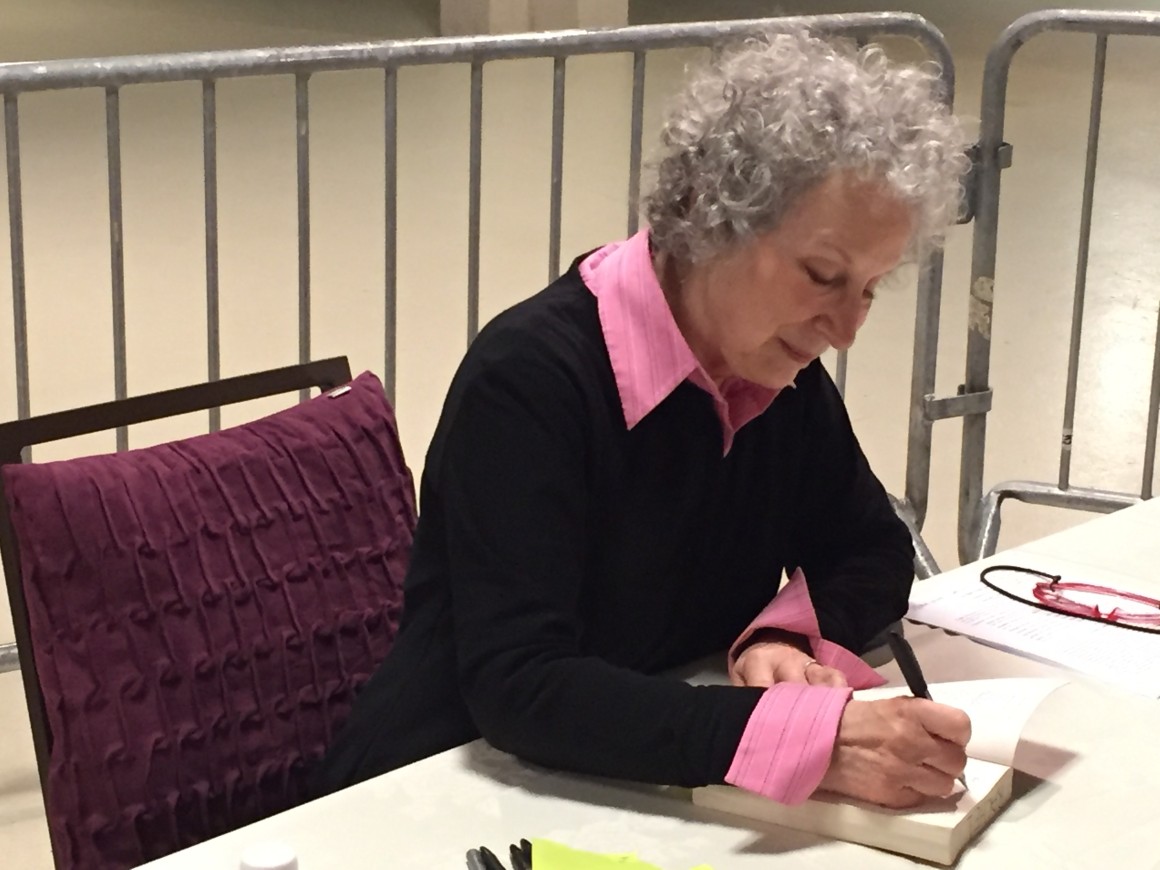
Margaret Atwood talks compassion and doll dissection at Congress 2016
By Claudia Wong, May 30 2016 —
Canadian poet and novelist Margaret Atwood was the keynote speaker at the Compassion under Contemporary Conditions symposium May 29 at the University of Calgary.
The Faculty of Nursing hosted the interdisciplinary symposium on compassion in healthcare, education and business for the 2016 Congress of the Humanities and Social Sciences.
In her lecture, Atwood gave her thoughts on the role and representation of nurses and compared compassion in life to its representation in media.
She noted that in Shakespeare’s The Tempest, Prospero is given a lesson from Ariel, a spirit. Prospero figures that if a non-human can be compassionate, he too should show compassion. As a result, Prospero does not go forward with his plan of revenge.
“In life rather than in literature, compassion is easier said than done,” Atwood said. “Nurses and doctors are in the line of fire for all kinds of bad behaviour from patients in hospitals and elsewhere.”
Atwood said she will revisit themes from The Tempest in her new novel Hag-Seed, due for release this fall.
Atwood also noted before professional nursing was established, women tended to the ill. Professional nursing was initially challenged because women expected financial compensation for what was seen as their natural duty.
As a child, Atwood was a part of a generation where children played with nurse and doctor sets. She said such sets are emblematic of discussions around compassion.
“Do I regret that operation on the doll that couldn’t close its eyes, an exploratory operation of scientific inquiry that resulted in a large hole in its cranium?” she said. “No, I had no compassion for the doll. It was only a doll. It wasn’t alive.”
Atwood said expressions of compassion are often exploited, referencing people who fake cancer and recent news of fake Fort McMurray evacuees.
“Who would be so callous as to ask to see their medical records?” she asked. “Unfortunately, the fake makes life more difficult.”
Atwood said displays of compassion can be examined on a spectrum, but compassion must also be addressed as a choice between two evils. She said this choice manifests in public debate around the issue.
“We’ve seen that in the abortion debate for decades. Now it’s playing out in the controversy over assisted suicide,” she said.
Atwood concluded her talk with a tip from a research study — to use the word “people” more.
“Instead of cancer patients, [say] people with cancer… Instead of being put into binary camps, people are put in the ‘people’ camp,” she said. “The central fact is that all are people.”
The Compassion under Contemporary Conditions symposium took place May 29 from 10:00 a.m. to 4:00 p.m. at MacHall and the new Taylor Institute for Teaching and Learning.
Congress 2016 will continue throughout the week. The event brings more than 8,000 academics from the humanities and social sciences to the U of C from May 28 to June 3.
